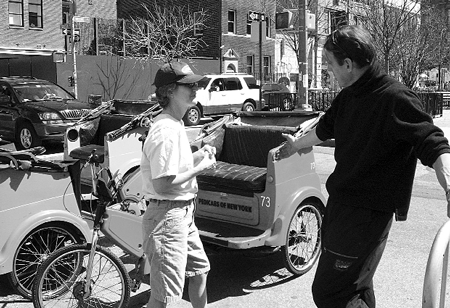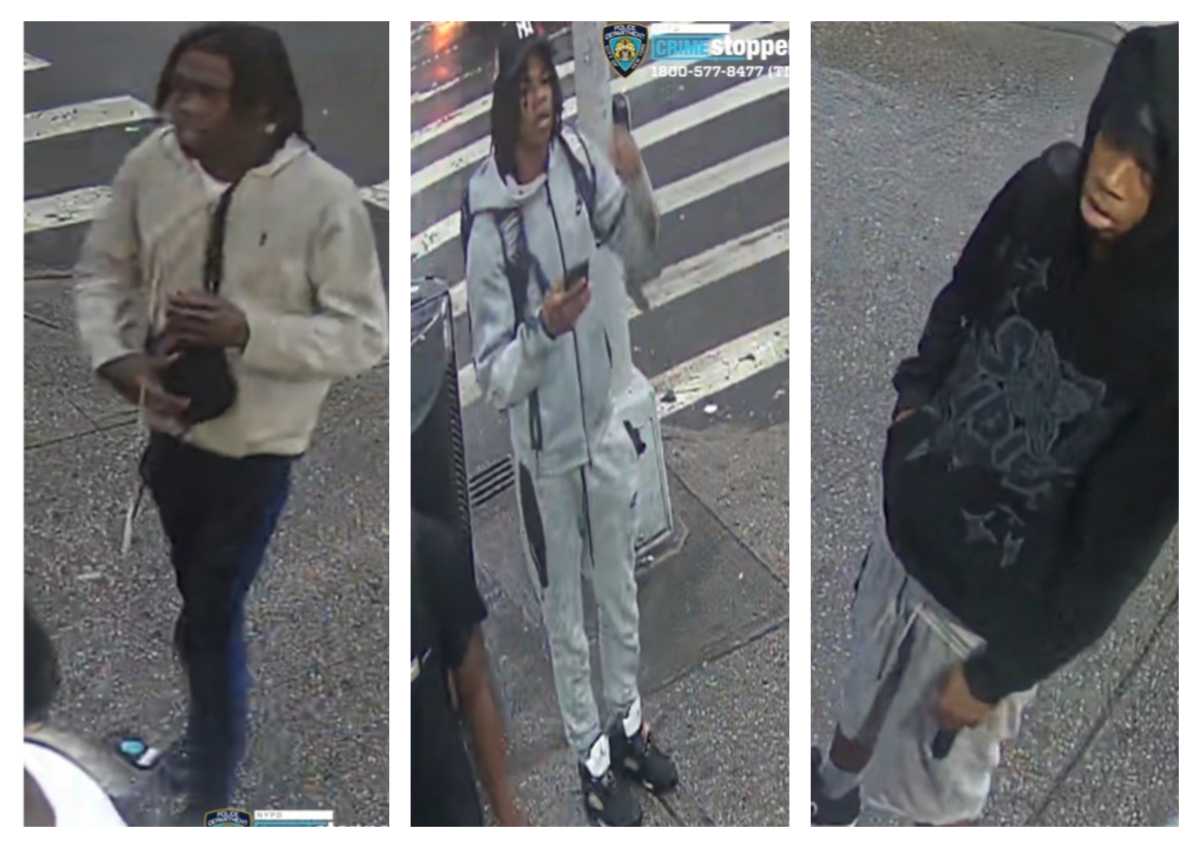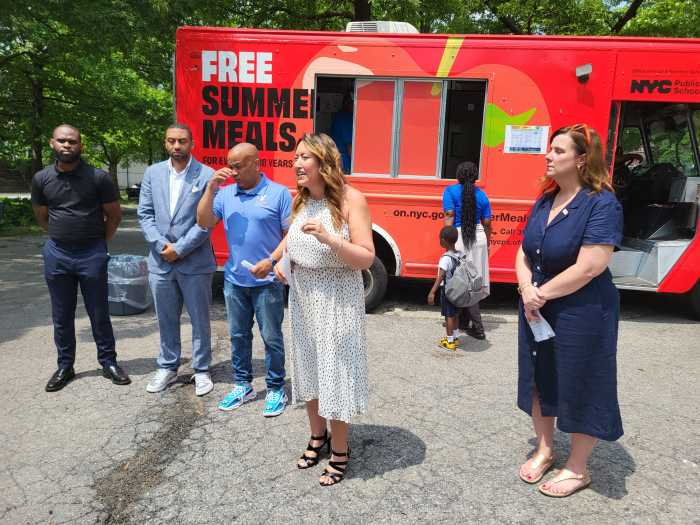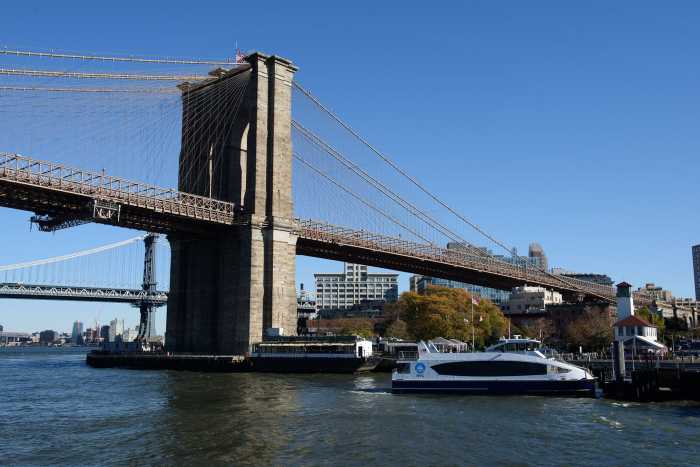By Aman Singh
The owner of The Hub Station, gaunt and dressed in rough overalls rolled above the ankle and sporting a mangled mane of hair, stared anxiously at the quickly forming traffic jam on Broome St. leading to the Holland Tunnel. He wishes he could do something to stop what he feels is the public’s space from being dominated by motor vehicles. He wishes he could spread his pedicabs to all the boroughs of the city.
But for now, George Bliss must keep his wishes to himself. He is being forced out off business. An accident that occurred three years ago in front of The Plaza on 59th St., where one of his pedicabs was crushed by a tour bus but did not result in any injuries for the passengers or the driver, is now forcing him to go out of business and sell off his pedicab fleet.
A year after the accident, Bliss was informed that the passengers, a doctor and his wife, had sued him for $12 million in damages. His insurance company, instead of fighting the case, settled it for $1.9 million, making him pay 10 percent, with the rest being paid by the bus company.
“Even though it was 10 percent, it was enough for me to go out of business. And enough for the insurance company to penalize me by canceling my policy,” said Bliss. Bliss was not able to get insurance from any company after that — except for Lloyds of London, which gives insurance to high-risk businesses, but at a heavy cost of a $25,000 deductible.
“In layman’s terms that means, in a possible accident, if two people are injured, I have to pay $25,000 per person before the insurance company pays anything,” he explained. No way was he ready for that. He declined it, feeling he was being punished for no fault of his own. “I’m the one who practically nurtured this industry, and was always pro-insurance,” he said. “But the way they have treated me, I have come to switch sides.”
The bicycle taxi industry in New York City continues to be unregulated. Ten years ago, when Bliss began his business with 25 pedicabs, he chose to ask local community boards, rather than City Hall, for permission. Community Boards 1 and 2 discussed it and eventually a lawyer on one of the boards raised the question of insurance. Bliss felt he was unable to pay the $15,000 a year as insurance for his drivers, but the board asked him to sell half his pedicabs to pay for insurance for the rest.
His drivers included teachers, writers, authors, musicians and even one corporate lawyer, and made decent money, giving him 20 percent of their fares. Soon an insurance broker offered him a lower rate, a tenth of the cost he had previously accepted.
Bliss, at that time, felt his business was finally becoming a well-paid profession. His drivers then made anything between $30 to $40 an hour and were happy pedaling all day long. He increased his fleet to 35 cabs.
But since the accident, things started going downhill for him. “There was no reason for me to continue doing this except that I love doing it. I want the city to have more public space free of motor vehicles. These monstrous huge things must not be our primary mode of transportation,” he said, looking at the stream of cars on Broome St.
Bliss, however, found himself facing increasing competition with a fleet of pedicabs operated by an owner of hansom cabs, or horse carriages, who was trying to horn into the industry Bliss had helped pioneer. These new pedicabs, though, didn’t have insurance, jeopardizing the entire industry, in Bliss’s view.
“The thing is that they are all uninsured, illegal, working-for-cash immigrants,” Bliss said. “They work from day to day for dollars and then leave. They don’t have anything to contribute to the industry of the city. If they are in an accident, who will the passengers sue? If they don’t find an individual, they will sue the city.”
According to Bliss, the couple in the accident were uninjured and he claimed he had witnesses to prove that. He also said that they refused an ambulance. “Why am I being punished for doing the right thing? What if I hadn’t insured the cab?” he asked.
For now, Bliss is busy talking to potential buyers, including individuals and businesses interested in buying his cabs. He says one firm in Flushing’s Chinatown wants to use the pedicabs to give tourists tours of the area. He’s had interest from Harlem and also Coney Island, where an individual wants to explore starting a pedicab business. Potential buyers are also calling from as far as Connecticut, Philadelphia, Boston and even Canada.
After his disappointment, one might expect Bliss to discourage people from going into the business he is being forced — after having nurtured it for a whole decade — to give up. But he feels he must help others, at least, continue the business and the mission of clean transportation. “If I’m done, I might as well try helping other people start their own businesses,” he said.
Yet, Bliss says he will not sell his Hub Station and will continue to try stay in the business, because of his love for the concept. He also is expecting that the city will soon regulate pedicabs, which would make more companies open to offering insurance, at which point he might try to make another go of it.
“It is then that I hope, I can expand my pedicabs in Harlem and Brooklyn. Harlem is ideal for them. It is totally flat,” he said. For the time being, Bliss is looking toward opportunities of going into the retail business, selling commercial bicycles, tricycles and electric scooters.
Dina Improta, a Department of Consumer Affairs spokesperson, confirmed that the city does not currently regulate pedicabs. However, she did acknowledge that there might be a chance of it happening, while saying that she did not know what timeframe this would take. “Pedicabs seem to be everywhere these days — we’re exploring the possibility of licensing, talking with business owners and studying what other cities have done,” she said.
Meanwhile, though he is selling off his fleet for now, Bliss remains bicycle taxis’ biggest advocate.
“These pedicabs are safe, they’re an easier way to travel, a fun way to travel and people enjoy it,” he said. “We have proved it for 10 years that people can make this into a full-time living option,” he said. However, the pending regulation worries him. “This will all change once the city regulates them. It will then be the day for the middlemen, who will reap all the profits while the drivers will become part of a slave trade,” Bliss said.
“What kind of a world do we live in?” he asked as he turned to answer yet another call from a potential pedicab buyer.
WWW Downtown Express

































